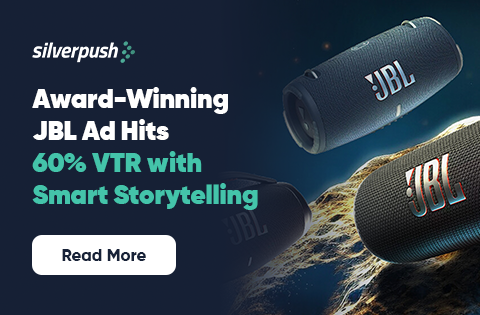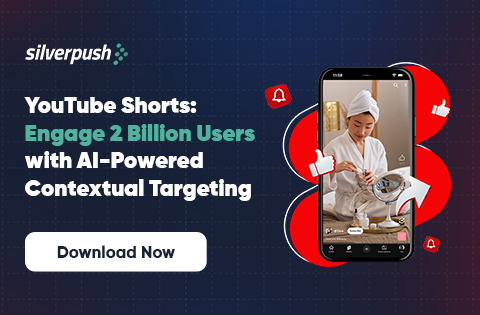The Demise of Third-Party Cookies: Can AI Advertising Fill the Void? | 15 Mar, 2023

As third-party cookies crumble, AI advertising is gearing up for its time in the spotlight – get ready for the rise of the machines in the ad tech industry!
The importance of third-party cookies can be well understood by digital marketers who rely on these small pieces of information to serve personalized ads to their audiences.
The usage of user data without their consent or knowledge has sparked significant debates surrounding consumer privacy, with users, legislators, and companies all expressing concerns about the potential impact on individual confidentiality.
Although cookies have been valuable for advertisers and marketers, their usage is now being closely examined as users demand more control over their online data, and companies face increasing pressure to prioritize consumer privacy. Major web browsers like Mozilla Firefox and Safari have already banned third-party cookies, and Google Chrome will soon follow suit.
To navigate the post-cookie world, advertisers will need to explore alternative options like Artificial Intelligence (AI), which is likely to replace cookies. AI-powered contextual advertising has emerged as a powerful tool for innovation, with companies using it for management, robotics, and marketing.
What Challenges are Faced by Marketers Due to Third-Party Cookies?
Ad tech companies often use a technique called fingerprinting to track users and deliver personalized ads. Fingerprinting relies on third-party cookies to generate user-specific browser ID tags.
When a user accesses a website with a cookie-based ad, a tracking pixel embedded in the ad collects the user’s browser tag and sends it to the advertiser’s server. Ad tech companies then use this information to develop user profiles and track browsing history, purchases, and other personal information.
However, users often have little knowledge of what personal information is collected and have limited control over preventing unwanted data collection unless they manually disable cookies on their browsers.
Eliminating the Use of 3rd Party Cookies

As privacy concerns grow, more companies are opting out of using third-party cookies. Major web browsers like Safari and Firefox have already blocked cross-tracking third-party cookies, and Google plans to phase them out on Chrome by 2024 to address user demands for greater privacy, transparency, choice, and control over their data.
Advertisers, who rely heavily on third-party cookies for data collection, will be significantly impacted by this change and must find new ways to access similar sets of data.
The most comprehensive data regulation to date is the General Data Protection Regulation (GDPR), which came into effect in 2018 within the European Union. It has set a high bar for data protection standards globally, as it emphasizes the importance of user consent and data transparency, putting greater control over personal data in the hands of users.
The Future of AI Advertising: Moving Beyond Third-Party Cookies
With the phasing out of third-party tracking cookies, advertising agencies are turning to contextual advertising as a strategy for targeting users based on their online experience categories, rather than behavioral advertising. Contextual targeting is being seen as a brand-safe, future-proof, and successful cookieless targeting option.
According to market data, the global contextual advertising market is predicted to reach $376.2 Billion by 2027, indicating the increasing popularity of this strategy.
Companies worldwide are redirecting their marketing resources toward developing a strong contextual strategy to adapt to the changing landscape of digital advertising.
Statistics that highlight the importance of contextual advertising:
1. Context is so powerful that 49% of brand marketers are looking to contextual advertising to replace cookies.
2. 79% of consumers are more comfortable seeing Contextual than behavioral ads.
3. Between 2020 and 2027, contextual advertising spending is expected to grow 13.3 percent annually.
4. 49% of US marketers surveyed are using contextual marketing today.
5. In the UK, 32% of marketers use contextual marketing, while 36% use demographic targeting.
Silverpush Leads the Way in AI-Powered Contextual Advertising for a Cookieless Future
As the digital advertising industry transitions to a cookieless future, contextual targeting is emerging as a powerful solution for advertisers looking to engage with their target audience.
Silverpush, one of the leading ad tech companies in the world recognized the limitations of third-party cookies years ago and developed their AI-Powered solution, Mirrors, which has been providing contextual advertising solutions on platforms like YouTube, OpenWeb, Meta, and CTV since 2012.
Mirrors use privacy-safe and contextual targeting solutions to deliver personalized ads to the target audience without relying on their data.
What Makes Mirrors Unique?

Mirrors’ AI-powered technology identifies key contexts and other factors for more precise targeting. Its unique custom identifying capabilities ensure that reach is not duplicated, and a unified approach is used for content-aligned ad placement, brand safety, and custom brand suitability.
The ads are placed in a brand-safe environment and are relevant to the brand, ensuring a positive and effective advertising experience for both the advertiser and the audience.
If you’re interested in learning more about how Silverpush can help you prepare for the cookieless future and advertise successfully, fill out the available form on the right and our team will reach out to you.

BLOGS
Silverpush Partner Spotlight: Moka Goto, Digital Planner at Dentsu Digital Global Center
This week, the Silverpush team spoke with Moka Goto, Digital Planner at Dentsu Digital Global Center, to discuss how YouTube advertising is evolving towards 2026. From shifting planning mindsets away from pure scale towards context and moments to rethinking how performance is evaluated, Moka shared how Dentsu Digital is ...

BLOGS
What Indonesians Actually Watch During Ramadan and Why Context Decides Which Brands Win
Every year, Ramadan quietly resets how Indonesia consumes content. Days start earlier. Nights stretch longer. Families gather more often around shared screens. What people watch changes, but more importantly, why they watch changes too. For brands, this is where Ramadan becomes deceptive. The numbers look incredible. According to the Silverpush ...

BLOGS
The Ultimate Advertising Calendar for 2026 Tentpole Events
In a world where trends change in the blink of an eye, relevance often feels like some sort of rat race. That is where tentpole events come in: these are key dates and milestones with cultural or industry importance that manage to grab people’s attention, be it the FIFA World ...







